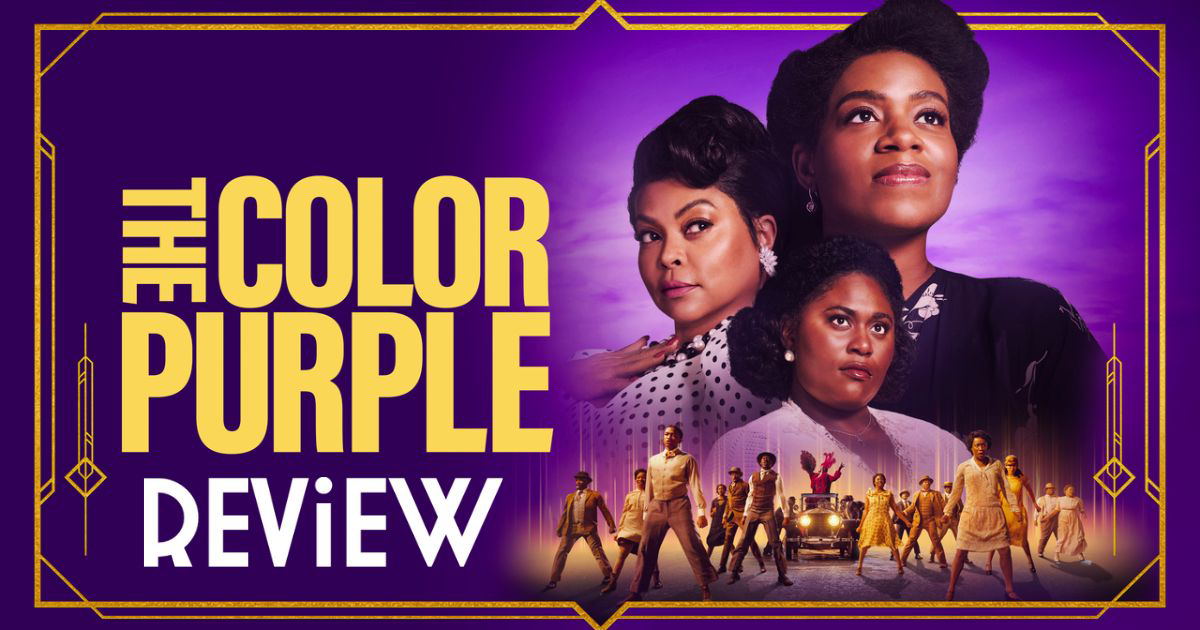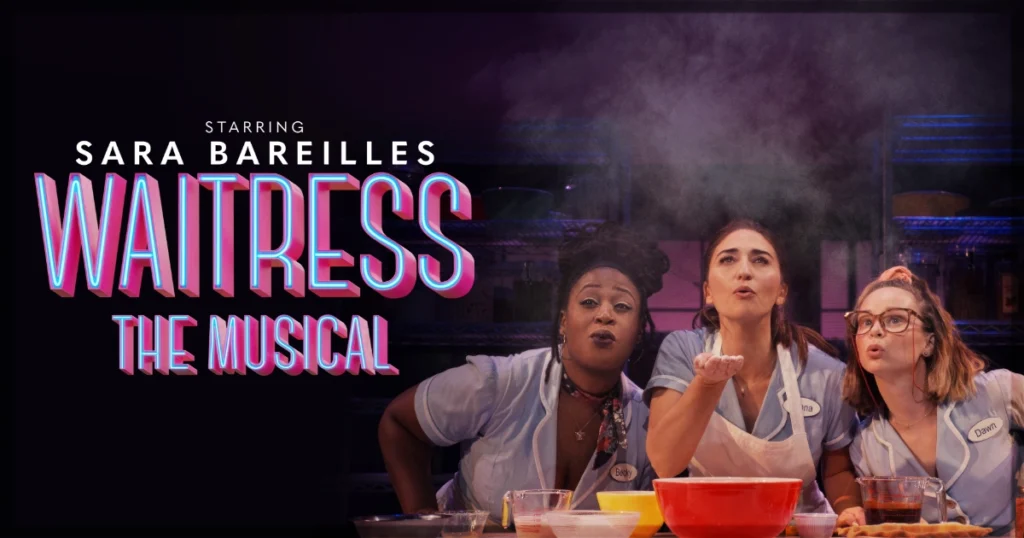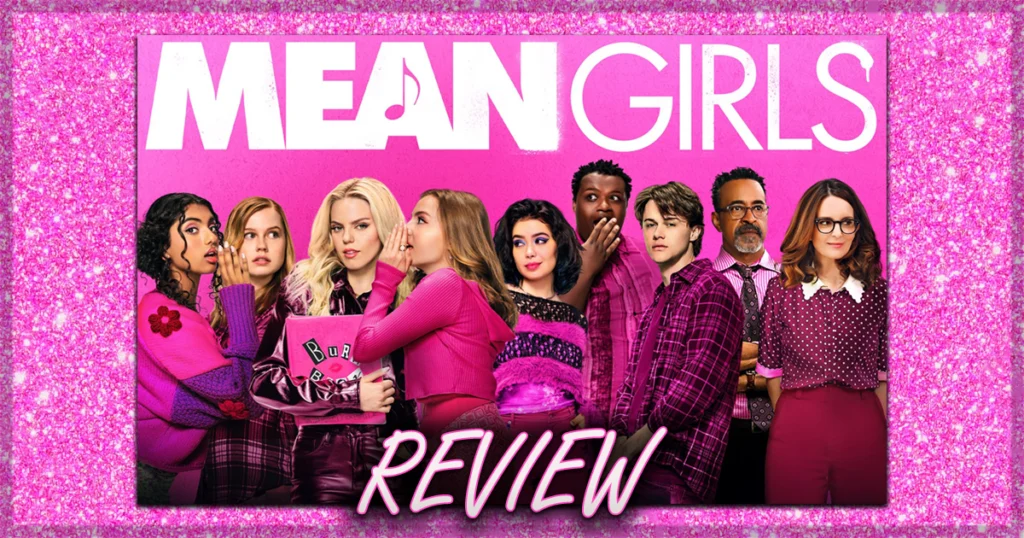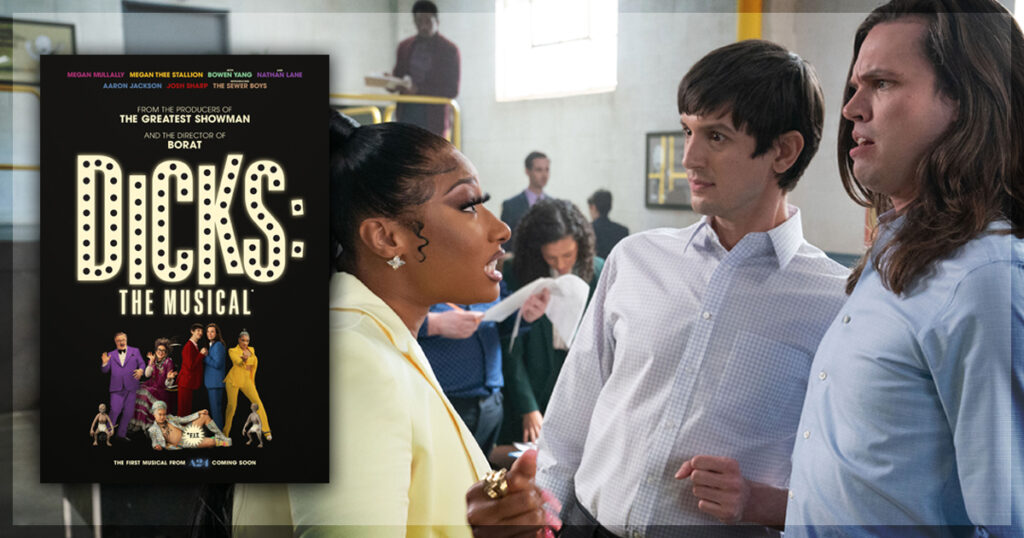It’s not every day that you walk away from a movie feeling moved in ways you weren’t expecting when you started it. At least, that’s been the experience for me. However, 2023 was filled with movies that impacted me in ways that I can only begin to describe, which is funny to think about seeing that I write reviews as a hobby. From Wonka and Elemental to All of Us Strangers and Poor Things, just to name a few, plenty of movies made me stop and think about the message and delivery and releasing emotions that have been sitting deep inside my being. The Color Purple was one of these films, which felt incredibly prolific in so many ways.
Based on the novel by Alice Walker, 2023’s The Color Purple is a musical adaptation, following in the footsteps of the Broadway show. This coming-of-age period drama was brought to life with the impeccable direction of Blitz Bazawule, who previously directed The Burial of Koho and Black is King (along with Beyoncé). Steven Spielberg, who directed the original 1985 film, returns as producer, along with Quincy Jones, and is joined by Scott Sanders and Oprah Winfrey in this role.
The Color Purple looks to modernize the story for a new generation while remaining true to the heritage and gravity that come with Walker’s original work. This would not be possible without the cast, who worked diligently to bring the gorgeous and colorful world to life. I cannot sing enough praise about this film, which was easily one of my favorites from this year. Want to know more about what to expect from The Color Purple? Read on, my dear friends, and prepare for this life-changing work of cinema.
[Warning: This article discusses topics of sexual assault and abusive relationships. Spoilers from The Color Purple are below!]
Celie’s on a journey of self-discovery in The Color Purple
Celie (Phylicia Pearl Mpasi) has lived a tough life, with struggles beginning at too young an age. Growing up as the protector of her sister Nettie (Halle Bailey), Celie suffers at the hands of her abusive father (Deon Cole) daily. She’s treated as property, there to do Alfonso’s bidding, as well as being sexually abused regularly, which resulted in two pregnancies. Considered the “ugly” one of the two sisters and therefore not worthy of love and affection, Alfonso forces her to marry Mister (Colman Domingo), a local drunk who is desperate for someone to clean his house and care for his children.
Instead of marrying for love, Celie (played by Fantasia Barrino) trades one form of slavery for another, as Mister is even more abusive than her father. He’s controlling, beating Celie and forcing himself upon her whenever he pleases. However, she still has an unbreakable bond with her sister, which is the only saving grace in the field of horrid treatment at the hands of a broken system. Her relationship with her sister is one of the core forces of The Color Purple, regardless of distance and time.
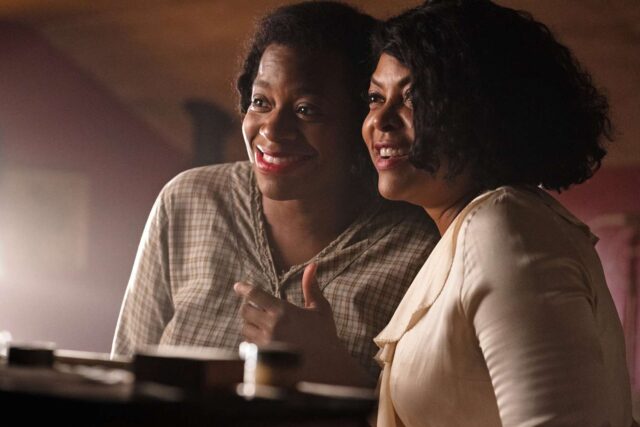
It isn’t long into the film when Celie and Nettie are separated due to Mister’s actions. Broken, Celie struggles to continue. Who is she without her sister? What is her purpose? These are questions that hang in the air as we watch her float through her life, filled with fear of her husband and resignation from her life circumstances.
That is until she meets Shug Avery (Taraji P. Henson), a performer who has a sexual relationship with Celie’s husband, Mister. Instead of becoming angry with the situation, something awakens in Celie, a turning point in her life. Shug unlocks a part of her that she didn’t know existed, opening a world of happiness that had long been missing in Celie’s life. Celie is no longer alone through her newfound sisterhood with Shug and Sofia (Danielle Brooks). Together, these three can weather any storm and prove that sometimes the family you make is stronger than the one you’re born into.
Throughout it all, Celie’s faith in God remains strong, as a force unlike anything else in her life. She knows one day she will reunite with her sister, as sure as she is that the color purple is a gift from above.
The positives and negatives of Warner Brother’s The Color Purple
I have to say, when I went to see The Color Purple, I was relatively unfamiliar with the story. I had never read the book or seen the original film. As someone who loves to read and watch television and film, this feels like a large oversight on my part. However, I was hooked from the first time I saw the trailer. The film looked incredibly unique, with a distinct vision and direction that set it apart from most modern films that go to the theater. This continued throughout the entire movie.
The work that director Bazawule put into the film is remarkable, with so much love and attention put into every cell of The Color Purple. This film was truly a spectacle to see on screen, as the world and characters are as vibrant as the colors it utilizes. I’ve never experienced a film quite like that, which infuses a sense of grandness into a down-to-earth, realistic story. It’s both larger-than-life and intimate. I’m not sure how these dualities exist so well in The Color Purple, but they do so in a way where the opposites aren’t fighting against each other but enriching them instead.
The cast in this film is magical, with each role being perfectly cast. Each and every actor on screen has moments that shine while also helping to facilitate those moments for others. So much of what brings The Color Purple to life is the work of Fantasia Barrino and Taraji P. Henson. Separately, these two are powerhouses in this film, but together they are spectacular. Their chemistry is electric, and I lived for each scene in which they were together. I knew both of them were strong actresses/singers, but I never expected the magic we received on screen.
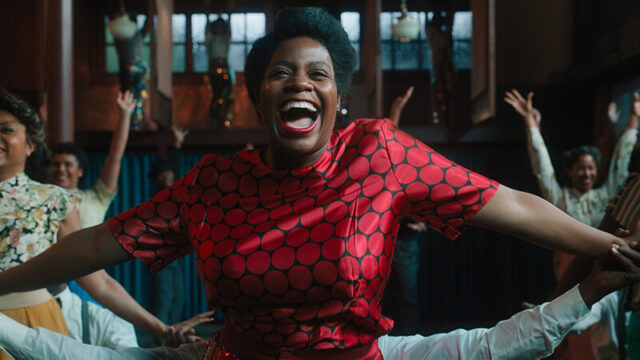
I was also thoroughly impressed with Colman Domingo as Mister. Mister is wicked and evil, doing horrendous things to others in his life. However, he eventually experiences a change of heart and shows a different side than the harsh and abusive husband to Celie. Domingo plays this part perfectly. I found myself hating him with such passion and vigor, which is a testament to the work that Domingo put into the role. He’s supposed to be despised for his horrible actions, that’s what makes a great antagonist. His acting in The Color Purple is enough to make me go back and watch every movie I possibly can with him in it.
I have to say that I had no previous indication that The Color Purple featured an LGBTQ+ storyline, something my sister pointed out when she read the book. She was shocked when she also discovered this, which seems like it could be a large selling point for a film such as this. However, it’s also possible that Warner Brothers was afraid that the representation might alienate some people, therefore losing them money. That being said, The Color Purple was another excellent example of a step forward for LGBTQ+ representation, which capped off a strong year for that.
The Color Purple’s message of resilience and endurance in the face of adversity is something that helps elevate this musical. While not everyone has experienced the level or type of abuse that Celie has, we have all experienced troubles and problems at some point in our lives. Celie’s life was tough, and her abuse was extreme and over such a long period of time.
However, part of her remains hopeful. She knows one day she’ll be reunited with her sister. Celie believes one day, she’ll get out from under the thumb of the abusive men in her life, breaking the chains of a broken system created to hold her in place. This type of resilience is incredible, as it’s just as easy to become hopeless. In fact, there are moments when you see the hopelessness creep into Celie, as her situation feels impossible. But her belief in God gives her strength, which carries her through the tough times.
The Color Purple struggles with pacing issues, which makes parts of the film slower than molasses. The story has plenty of drama and character development, pushing these characters forward, but sometimes the pacing also grinds to a halt, which might be boring to some. Perhaps if the film was cut down just a bit, it would have moved just a bit better.
Final thoughts on The Color Purple
As a lover of musicals, The Color Purple has risen up the list of all-time favorites. The songs were beautifully composed and brilliantly executed. The use of color was something remarkable, bringing life to the story in ways I never expected. While the film might have some pacing issues, the incredible steps forward that The Color Purple takes for the representation and exploration of difficult topics and underserved minorities make this one of the most important films of 2023.
The Color Purple is now streaming.
Have you checked it out yet? What did you think of The Color Purple? Connect with us on X @MoviesWeTexted to share your thoughts.
You might also like…
‘Waitress: The Musical’ Movie Review
Review: ‘Mean Girls’ (2024) is a Superior Reinvention of the 2004 Original
Review: ‘Dicks: The Musical’ is the funniest film of the whole year

